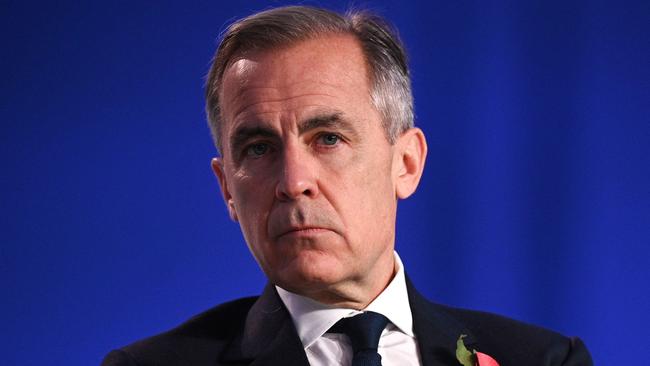Former central banker Mark Carney seeks Trudeau’s job
Former Canadian and UK central banker Mark Carney has declared his interest in succeeding Justin Trudeau as leader of Canada’s Liberal Party and the country’s prime minister.

Former Canadian and UK central banker Mark Carney has declared his interest in succeeding Justin Trudeau as leader of Canada’s Liberal Party and the country’s prime minister, promising an economic agenda focused on lifting it from a period of stagnant growth.
Mr Carney disclosed his intentions to a crowd in Edmonton, Alberta, the western Canadian city where he spent the bulk of his youth.
In making the case to be Liberal leader and Canadian prime minister, he highlighted his experience managing financial crises in both Canada and the UK.
As he did in an appearance this week on The Daily Show, Mr Carney criticised the Trudeau-led government’s economic stewardship.
“I’m not the only Liberal in Canada who believes that the Prime Minister and his team let their attention wander from the economy too often,” he said.
“I will not lose focus.
“Our growth has been too slow. People’s wages are too low. The federal government spends too much, but it invests too little. Middle-class taxes are too high.”
Shortly after his formal announcement on Thursday, Brookfield Asset Management said Mr Carney had stepped down as the investment firm’s chairman, and that chief executive Bruce Flatt would take on the role.
Mr Carney said he has resigned other board memberships, including the technology company Stripe and media company Bloomberg.
Mr Carney becomes the first high-profile name to enter the Liberal Party leadership race, at a time when the party trails the Conservative Party by a wide margin, and the economy faces turbulence from US president-elect Donald Trump’s threat to impose a 25 per cent tariff on all Canadian imports.
Mr Trudeau said this month he would step aside as Prime Minister, once Liberal Party members pick a new leader in a March 9 vote.
A national election must be held no later than October, and it is looking likely an election will come this northern spring after the legislature resumes in late March. All three main opposition parties have vowed to defeat the minority Liberal government at the earliest opportunity when the legislature returns on March 24.
Mr Carney was previously at Goldman Sachs before joining the Bank of Canada as a deputy governor in 2003. He was the Bank of Canada governor during the 2008 global financial crisis, and earned praise domestically for his role in guiding the economy and ensuring financial stability relative to other Group of Seven economies.
He later served as the Bank of England governor, from 2013 to 2020, and tried to steer the economy through Brexit.
Political watchers in Canada expect the Liberal Party leadership campaign to come down to a contest between Mr Carney and former finance minister Chrystia Freeland, whose resignation letter last month set the stage for Mr Trudeau’s decision to resign.
A formal announcement from Ms Freeland is likely in the coming days, according to a person familiar with the situation.
The next Liberal leader faces stiff headwinds to revive Liberal Party fortunes. The Conservative Party holds a sizeable lead, between 20 to 25 percentage points, over the Liberals.
Conservative leader Pierre Poilievre has built up a lead based on Canadians’ disillusionment with their financial status, amid tepid after-tax wage growth and higher food and shelter costs.
Mr Poilievre has vowed to cut taxes, including a levy on carbon, and curtail government spending.
He said on Thursday that Mr Carney needed to shoulder blame for the economy’s weak performance, noting the Prime Minister appointed him as the Liberal Party’s economic adviser.
Mr Trudeau has said he had tried to recruit Mr Carney to join the government for some time, including late last year.
Mr Carney said Mr Poilievre was a populist, much like those who championed Brexit. “Populists don’t understand how the economy and our society actually work,” Mr Carney said. “I’m focused on building our economy.”
The Wall Street Journal



To join the conversation, please log in. Don't have an account? Register
Join the conversation, you are commenting as Logout